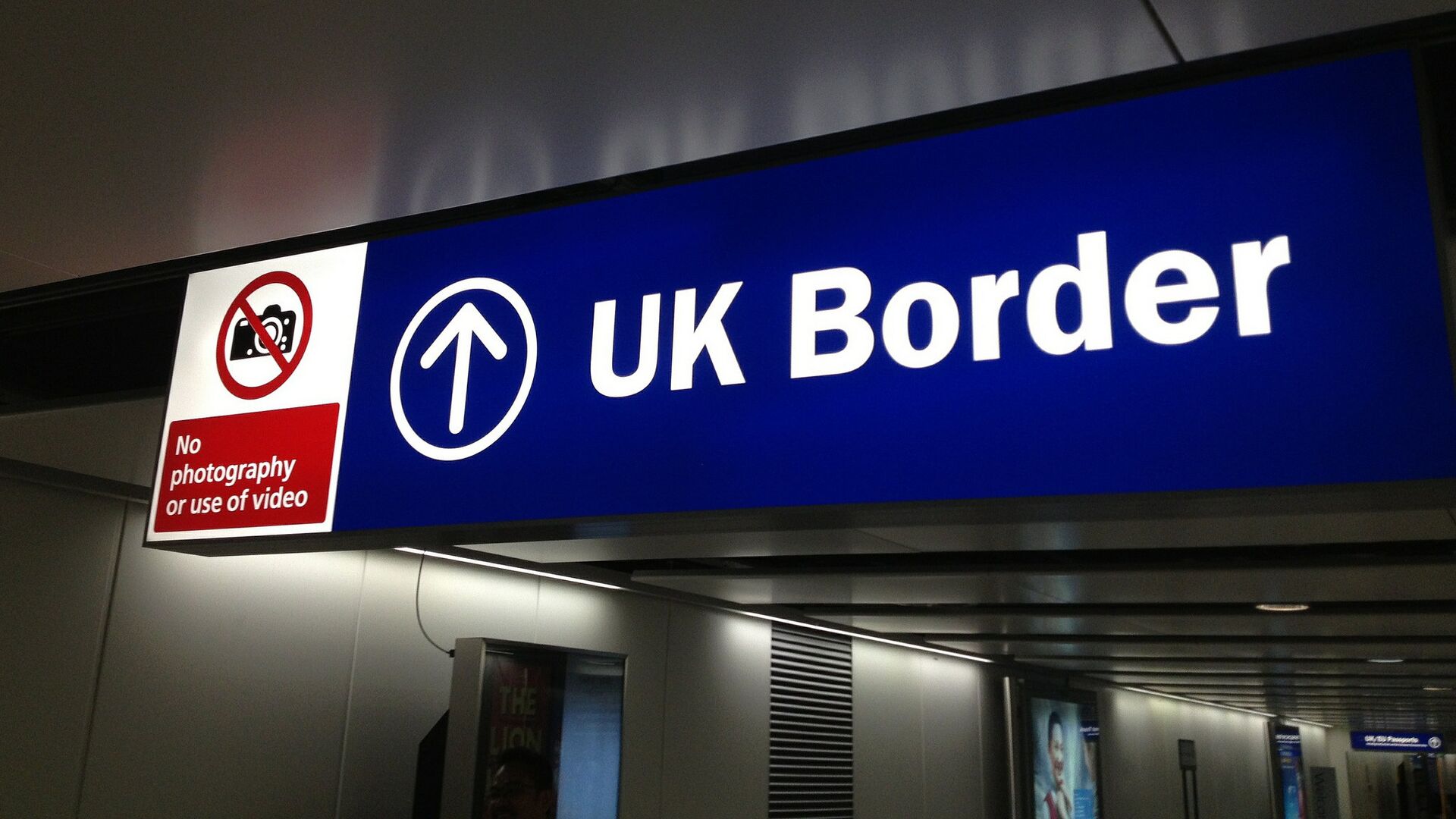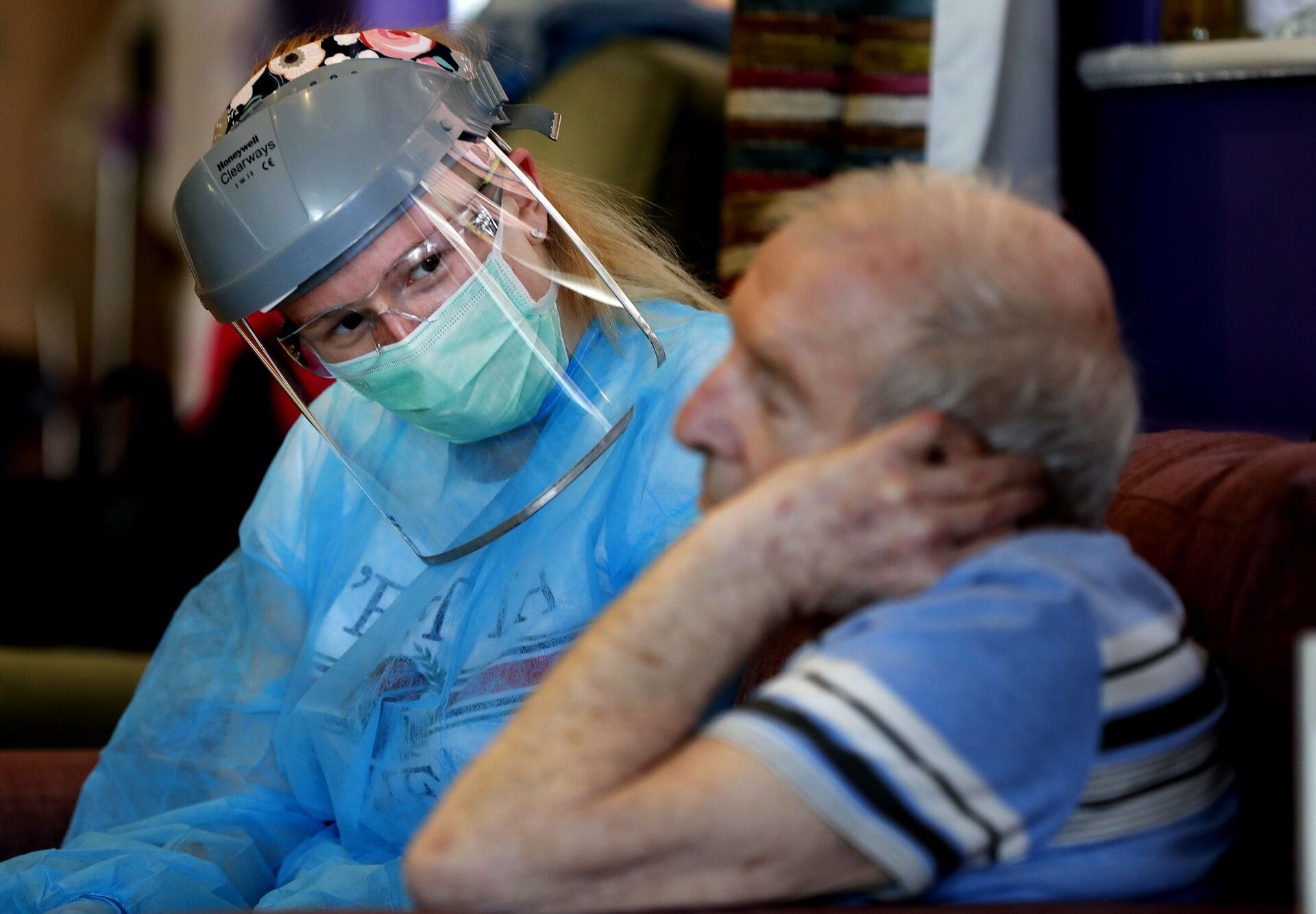UK Gov’t Accused of 'Disgraceful Cover-Up' of 2016 Report Warning of Pandemic Response Shortcomings
08:56 GMT 08.10.2021 (Updated: 15:16 GMT 28.05.2023)
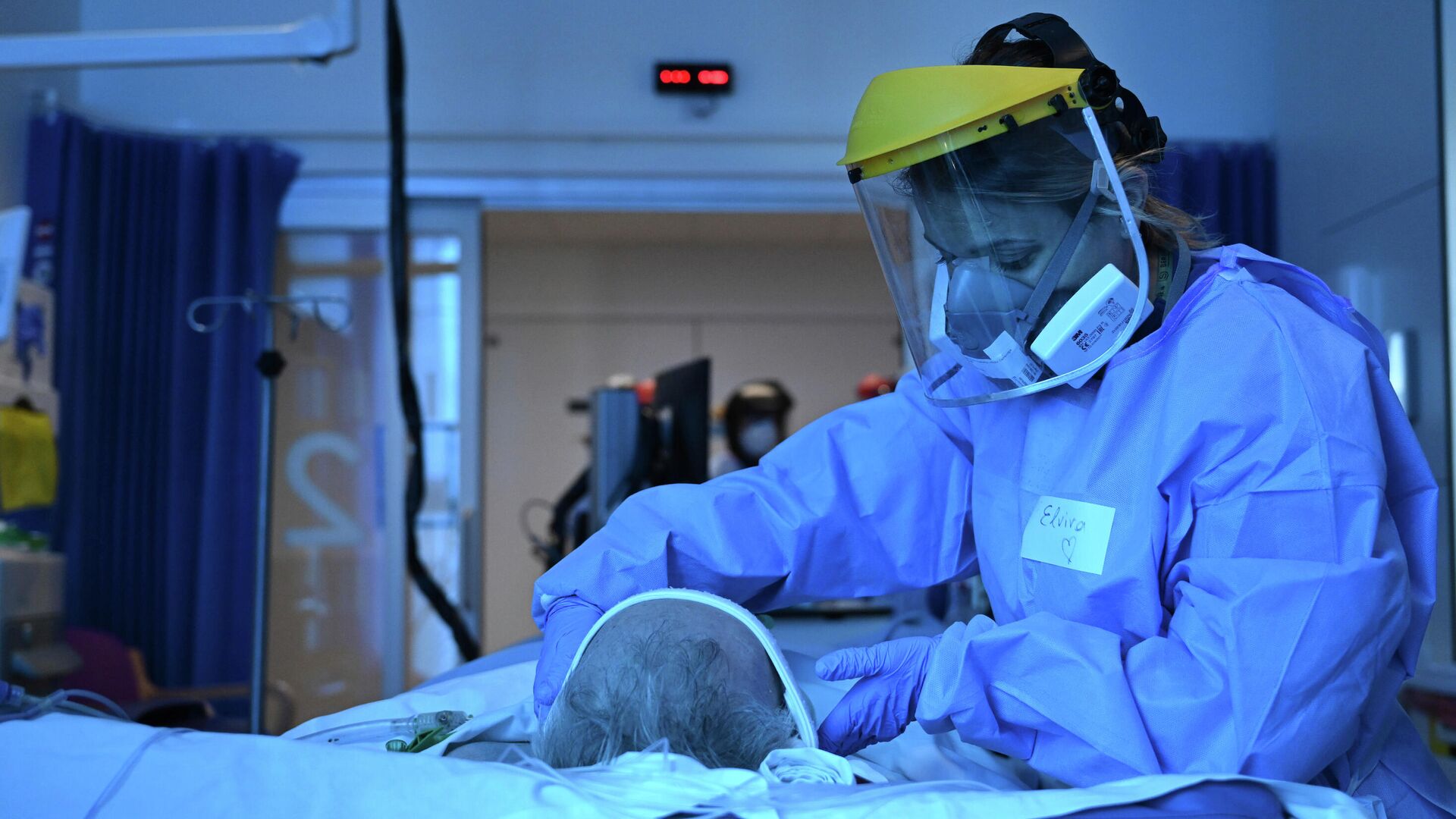
© AP Photo / Neil Hall
Subscribe
Throughout the current coronavirus pandemic, the UK government has faced criticism over its handling of the initial response to the health crisis. The country had battled reported chronic shortages of Personal Protective Equipment (PPE) in early 2020, while allowing people to arrive unscreened from COVID-19 hotspots, such as China and Italy.
The government of Boris Johnson has been accused of covering up a report compiled in 2016 that had alerted it to major shortcomings in its response to a potential pandemic, according to The Guardian.
A planning exercise by Public Health England commissioned in February 2016 and code-named Exercise Alice, had war-gamed a response to an outbreak of Middle East respiratory syndrome (MERS-CoV), which, similar to COVID-19, results in potentially fatal respiratory illness and is able to spread asymptomatically.
The previously unpublished 23-page report pertaining to the health planning drill commissioned by Dame Sally Davies, then chief medical officer, was released on Thursday under freedom of information laws.
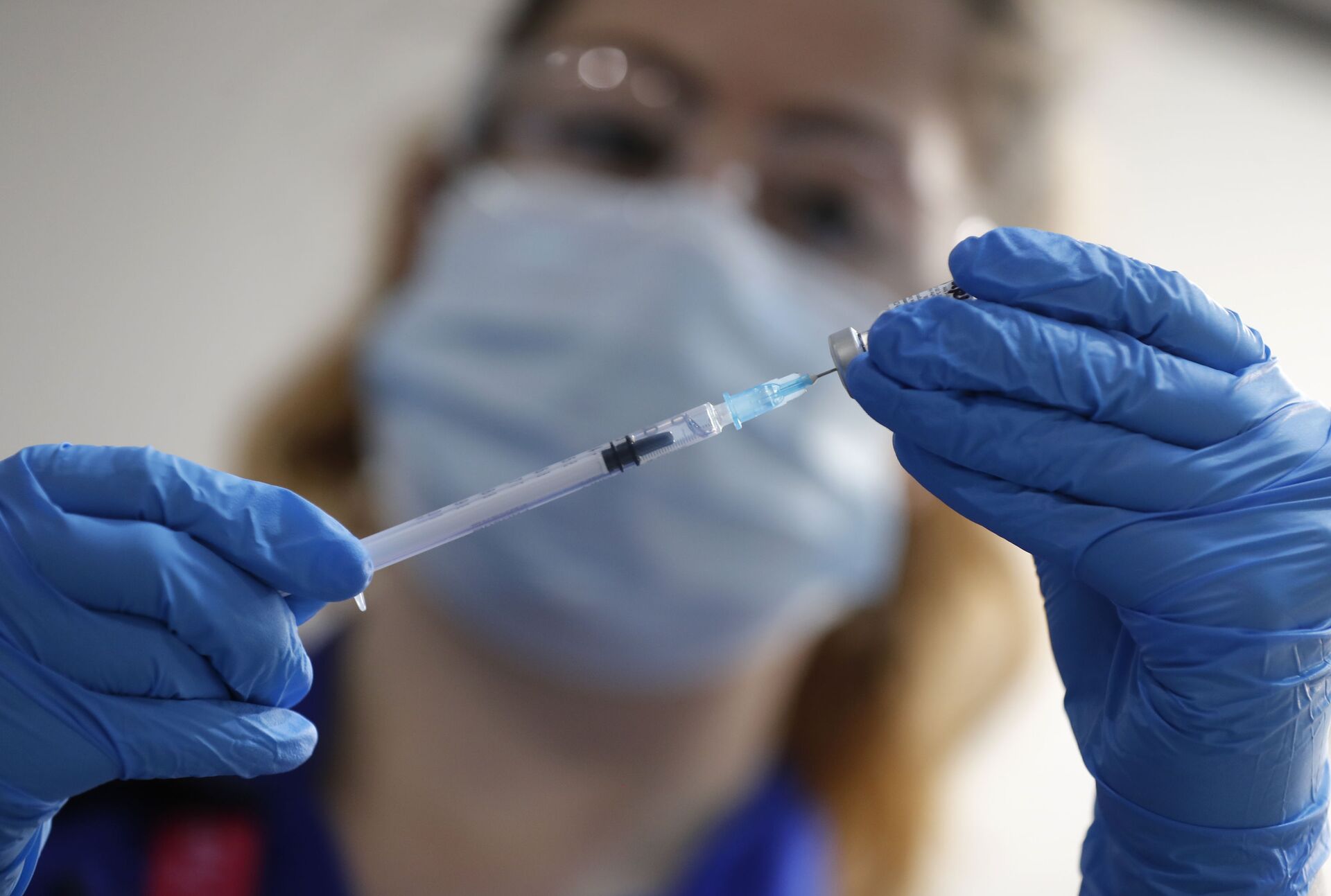
A nurse prepares to administer the Pfizer-BioNTech COVID-19 vaccine at Guy's Hospital in London, Tuesday, Dec. 8, 2020
© AP Photo / Frank Augstein
The file stated that the response-modelling exercise revealed three areas as riddled with shortcomings. According to the health experts, to gear up to face a “large scale outbreak” the country needed to stock up on Personal Protective Equipment (PPE), put in place a contact tracing system and introduce enhanced screening for foreign travelers.
The 2016 exercise concluded that sufficient levels of PPE were “of crucial importance for frontline staff” and “pandemic stockpiles were suggested as a means to ensure sufficient quantities were available”.
The health officials behind the report underscored the vital importance of “port of entry screening” for arrivals from abroad. Health officials were called upon to “produce an options plan using extant evidence and cost benefits for quarantine versus self-isolation for a range of contact types, including symptomatic, asymptomatic and high risk groups.”
The exercise suggested “a web-based tool … a live database of contacts with classifications, current state and other data germane to the situation” to enhance tracing the contacts of people who potentially contracted the virus.
The government was advised to arrange for “sleeping contracts” that would subsequently enable swift trials of vaccines and therapies.
“There was a general consensus on the need to identify capacity and capability of assets within the health system. Assets in this context would be all resources that would be required to effectively respond to a MERS-CoV outbreak such as trained personnel, appropriate PPE in sufficient quantities and the requisite beds with suitable clinical equipment,” concluded Exercise Alice.
‘Disgraceful’ Cover-Up
In August the UK government refused to release the report, arguing it could “lead to loss of public confidence in the government’s and the NHS’ Covid-19 response … based on misinterpretation of the report,” stated the outlet.
Dr. Moosa Qureshi, a clinician who has been posting official documents about pandemic preparation exercises he has obtained online, was cited as saying:
“Disgracefully, the government covered up Exercise Alice – a coronavirus exercise which predicted the importance of isolating patients, contact tracing, PPE provision, trained personnel and adequate NHS beds.
Weighing in on the fact that previously UK ministers have argued that pandemic planning had focused more on flu, he added:
“The fact that Covid-19 is a novel type of coronavirus is irrelevant, every pandemic is different. But the lessons of Exercise Alice were generally applicable to coronaviruses including Covid-19, they were agreed by general consensus, and both political leaders and NHS England executives failed to implement that consensus.”
According to Tessa Gregory, from Leigh Day law firm representing Qureshi, the government should disclose “what follow up action was taken … and why matters such as a proper working contact tracing system had not already been set up”.
There have been other pandemic planning exercises. A file written up in the wake of the 2016 three-day Exercise Cygnus, reported by The Guardian, highlighted problems with preparations for a flu pandemic.
“It was a trial run for a flu pandemic, not of the kind that Covid produced, and the demands on PPE, the health sector and the care sector were more profound than the flu pandemic trials prepared us for,” Lord Bethell, then health minister, said in parliament at the time.
Pandemic Response ‘Failings’
From the outset of the COVID-19 pandemic, which has claimed more than 137,417 lives so far, according to the government’s figures, some key areas emphasised in the report had become challenging issues.
In March 2020 nurses and care workers reported chronic shortages of PPE. Furthermore, as cases soared, the UK government continued to allow people to enter the country unscreened from China and Italy, which were coronavirus hotspots at the time.
The UK government launched its National Health Service (NHS) test-and-trace service on 28 May 2020 - over two months after the first pandemic lockdown was introduced. The system was slammed for failings in the summer of 2020, with the proportion of close contacts of infected people being reached registered as far below the 80% level needed for it to be effective.
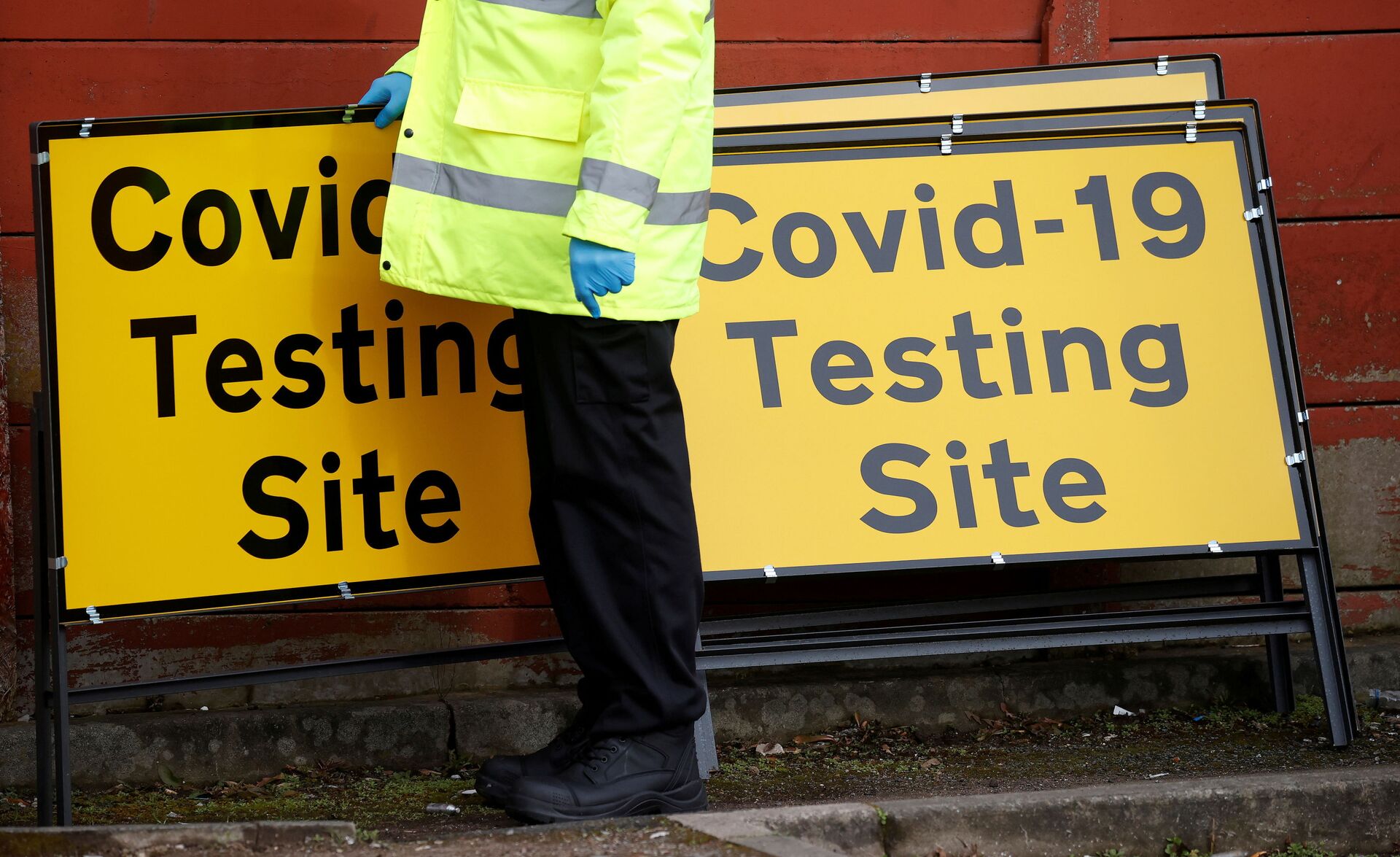
FILE PHOTO: Mobile testing centre amid the outbreak of the coronavirus disease (COVID-19) in the Moston area of Manchester
© REUTERS / PHIL NOBLE
In May the UK government agreed to convene a statutory public inquiry into its handling of the pandemic, scheduled to begin work in spring 2022.
Commenting on the newly-published report on Operation Alice, a spokesperson for the Department of Health and Social Care underscored that the health drill “was not a coronavirus pandemic preparedness exercise”.
“MERS-CoV does not transmit as easily as SARS-CoV-2 between people, outbreak sizes are comparatively small and the risk to individuals in the UK remains very low. The results of Exercise Alice have been incorporated into ongoing planning work conducted by DHSC, UKHSA and the NHS to respond to potential outbreaks of high consequence infectious diseases like MERS-CoV.”
